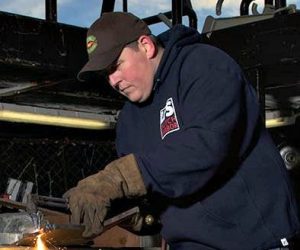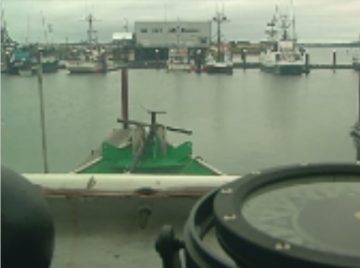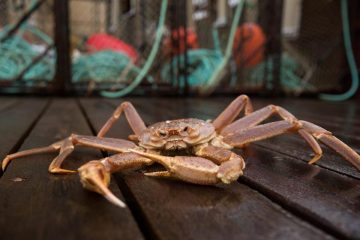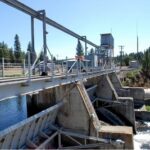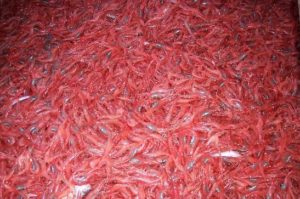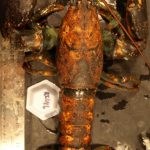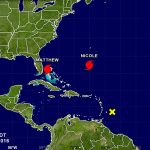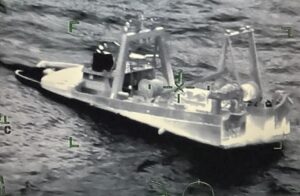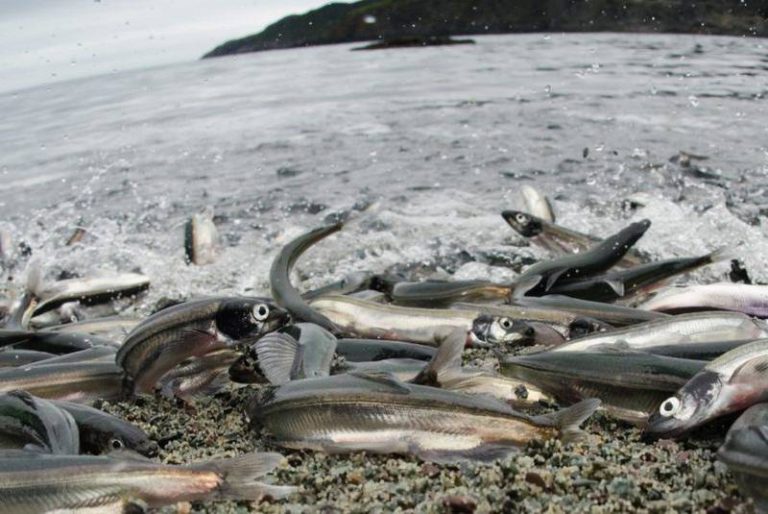Category Archives: Pacific
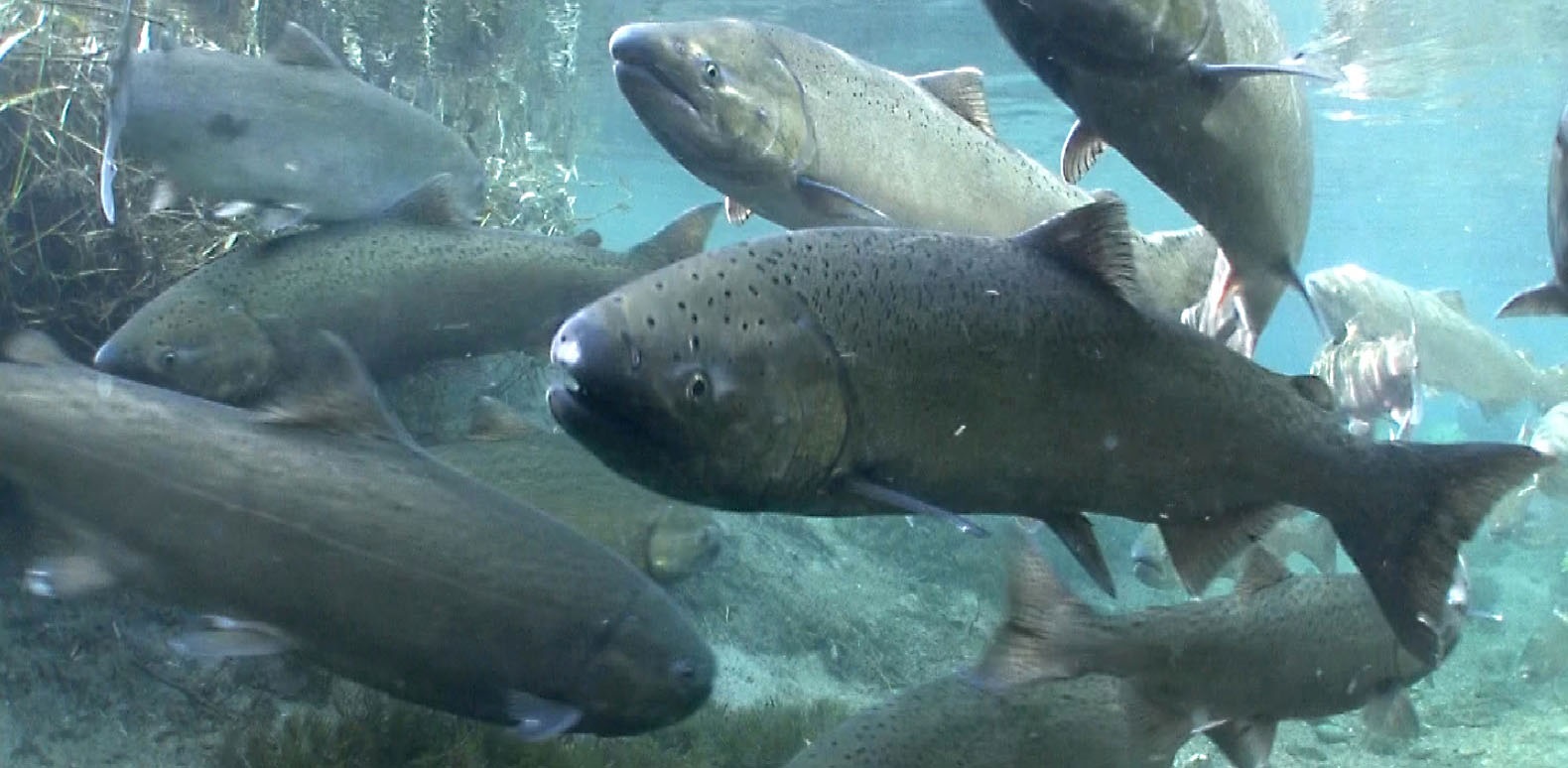
California’s Salmon Industry Set to Take Another Hit
Fisheries managers will impose the toughest restrictions on California’s salmon harvest in nearly a decade, hobbling the billion-dollar industry that depends on it. This year’s fall salmon run is estimated to be only a quarter of normal on California’s Sacramento River, due mostly to drought conditions and warmer ocean temperatures. As a result, officials at the Pacific Fishery Management Council last week moved to cut the commercial season by as much as a third of its standard length. >click to read< 10:42
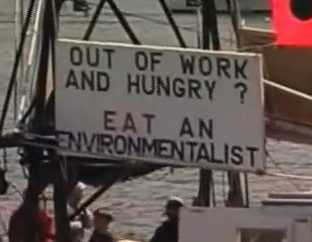
Lawsuit Challenges Trump Administration’s Failure to Protect Pacific Humpback Whales Threatened by Fishing Gear, Ship Strikes, Oil Spills
The Center for Biological Diversity, Turtle Island Restoration Network and Wishtoyo Foundation today sued the Trump administration for failing to protect humpback whale habitat in the Pacific Ocean, where the animals face threats from fisheries, ship strikes and oil spills. Today’s lawsuit, filed in federal district court in San Francisco, aims to force the National Marine Fisheries Service to follow the Endangered Species Act’s requirement to designate critical habitat within one year of listing a species as threatened or endangered and not authorize actions that,,, >click to read< 16:12

Woman raped by Fish & Wildlife official: ‘I used to be so happy’
When Thurston County Superior Court Judge James Dixon sentenced ex-Department of Fish and Wildlife official Greg Schirato to the maximum sentence for breaking into a colleague’s home and raping her in her sleep, the woman he attacked burst into sobs, a smile breaking through. “I believe Mr. Schirato is a predator,” Dixon said, handing down a sentence of about 10 years to life in prison. “I believe this community needs to be protected from Mr. Schirato. I believe our community has a right to be heard, I believe (the victim) has a right to be heard.” >click to read<14:30
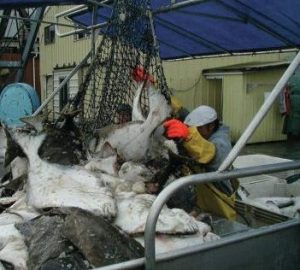
Halibut fishery poised to open as NMFS works on 2018 catch limits
Alaska’s halibut fishery is set to open this month, but the final quota was still not completely set as of March 14, even as fishermen began to receive permits in the mail. Indications, however, are that the quota will decrease this year compared to last. Under regulations published by the National Marine Fisheries Service this month, the fishery will open March 24 and run through Nov. 7. But the total catch limits remain unknown. That’s because this year, for just the second time in the commission’s history that dates to its creation by a 1923 treaty, the International Pacific Halibut Commission could not come to an agreement about the 2018 catch limits at its annual meeting. >click to read<12:36
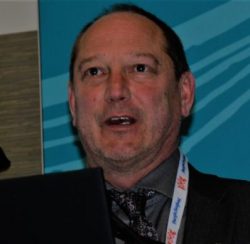
US fisheries’ leader Oliver asserts ‘business-minded’ stance
The US’ top regulatory authority on fishing used his first appearance ever at a Seafood Expo North America (SENA) conference on Sunday to describe how he was reshaping the mission at the National Oceanic and Atmospheric Administration (NOAA) to create more of a pro-business environment. Commercial fishermen largely applauded the Donald Trump administration’s selection of Chris Oliver to serve as NOAA’s assistant administrator of fisheries in June 2017. >click to read< 09:41
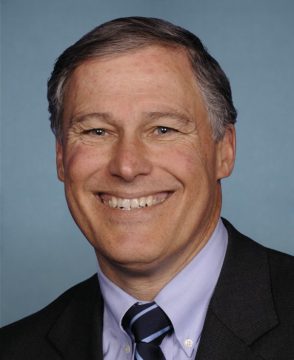
New Washington directive aims to help endangered orcas
With the number of endangered Puget Sound orcas at a 30-year low, Washington Gov. Jay Inslee on Wednesday signed an executive order directing state agencies to take immediate and longer-term steps to protect the struggling whales. The fish-eating mammals, also known as killer whales, that spend time in Puget Sound have struggled for years because of lack of food, pollution, noise and disturbances from vessel traffic. There are now just 76, down from 98 in 1995. Inslee said the orcas are in trouble and called on everyone in the state to do their part. >click to read<20:49
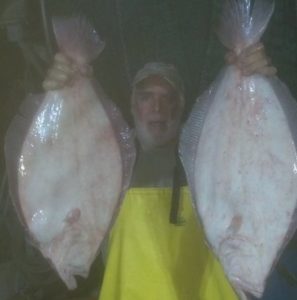
The US Senate needs to support the AMERICAN FISHERIES ADVISORY COMMITTEE ACT, S1322
To all, My name is Joel Hovanesian and I am a commercial fisherman who resides in RI but have held a CT. licence for some 30 years. I have a small inshore vessel now after selling my offshore boat in 2010. I have been dealing with Mike Gambardella since he started in the Borough. I want to bring an issue forward and give insight to some thoughts. I have been an outspoken critic of the way we have been managing our fisheries here in New England and other places on the Eastern Seaboard. We all recognize the fact that regulations need to be in place for obvious reasons, however as often happens when the Federal Government gets involved with things, they have a tendency to take on a life of their own. >click to read<13:36
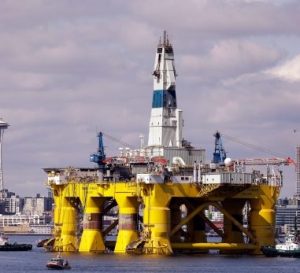
U.S. States Slow Trump’s Offshore Drilling Expansion Plan
The Trump administration’s plan to broadly expand drilling in U.S. offshore waters is moving slowly due to opposition from coastal states and indifference from oil companies that have turned their focus to other opportunities. The administration hopes encouraging U.S. energy development outside of shale oilfields will further its goal of “energy dominance.” But existing Obama administration lease rules remain in place through 2022 unless the new rules gain approval. The Department of the Interior this year proposed opening vast new acreage in the U.S. outer continental shelf to drilling. >click to read< 08:56
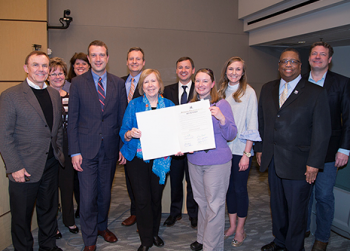
Council recognizes the 90th annual “Blessing of the Fleet” as crews prepare to head to Alaska
Our region enjoys some of the best seafood in the world, much brought to our shores from crews preparing to go to Alaska for the summer fishing season. The Metropolitan King County Council today recognized those brave men and women who will spend their summer in the North Pacific by recognizing the “Blessing of the Fleet” which will occur this weekend, the start of the halibut fishing season.,, “These crews and their captains face a level of danger that most of us will never confront in our workplace, and they do so year after year,” said Councilmember Jeanne Kohl-Welles, the sponsor of the recognition. For the 90th year, families and friends of the crews preparing to leave will gather at Fisherman’s Terminal in Ballard for a blessing,,, >click to read<20:31
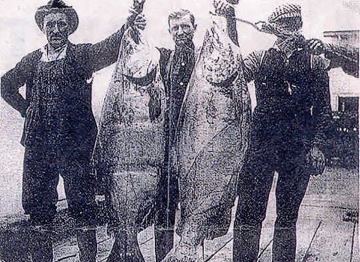
This Is Why You Don’t See People-Sized Salmon Anymore
While the orcas of Puget Sound are sliding toward extinction, orcas farther north have been expanding their numbers. Their burgeoning hunger for big fish may be causing the killer whales’ main prey, chinook salmon, to shrink up and down the West Coast. Chinook salmon are also known as kings: the biggest of all salmon. They used to grow so enormous that it’s hard now to believe the old photos in which fishermen stand next to chinooks almost as tall as they are, sometimes weighing 100 pounds or more. >click to read<11:06

What a disappointment. It seems Senator Markey is still holding out on Bill S1322, American Fisheries Advisory Committee Act
What a disappointment. I just got a call from Bruce Schactler of the National Seafood Marketing Coalition, and it seems Senator Markey is still holding out on Bill S1322…the American Fisheries Advisory Committee Act. Senator, I have always supported you because you were there for us with regards to fisherman. I am a retired Captain and we have met in the past. I have reached out to you many times recently regarding this important bill by Senator Sullivan of Alaska who has a bill that we want passed, and expect you to support. Sam Parisi>click to read< 21:15
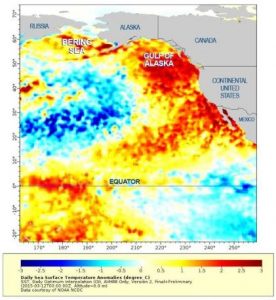
North Pacific Recovering From The Blob, Salmon More Slowly
Ocean conditions off most of the U.S. West Coast are returning roughly to average, after an extreme marine heat wave from about 2014 to 2016 disrupted the California Current Ecosystem and shifted many species beyond their traditional range, according to a new reportfrom NOAA Fisheries’ two marine laboratories on the West Coast. Some warm waters remain off the Pacific Northwest, however. >click to read<07:57
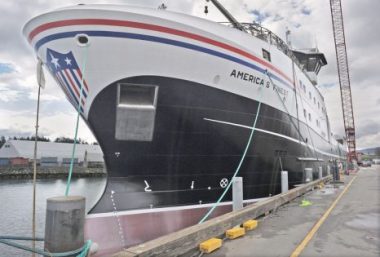
Senator pursuing new route to Jones Act waiver for America’s Finest
The push to get a Jones Act waiver for America’s Finest will take a new tack in the U.S. Senate. Earlier this week, the Senate Homeland Security Committee approved its own version of the Department of Homeland Security reauthorization bill. The Senate’s version did not include an amendment approved by the House of Representatives to grant a waiver for the USD 75 million (EUR 61 million) ship built by Dakota Creek at its Anacortes, Washington facility for Fishermen’s Finest. >click to read< 14:09
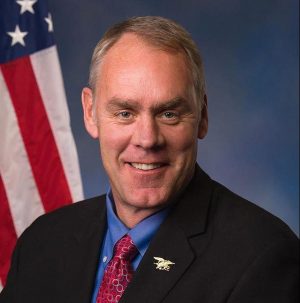
Zinke promises to ‘partner’ with oil industry, as offshore drilling opponents push back
Opponents of the Trump administration’s offshore drilling proposals pressed their case as a first 60-day public comment period drew to a close this week. Meanwhile Interior Secretary Ryan Zinke, speaking at a Houston energy industry conference Tuesday, talked up the offshore plan and other administration moves to streamline drilling and infrastructure permits. The Department of Interior, Zinke said, “should be in the business of being a partner” with industry. >click to read<10:11
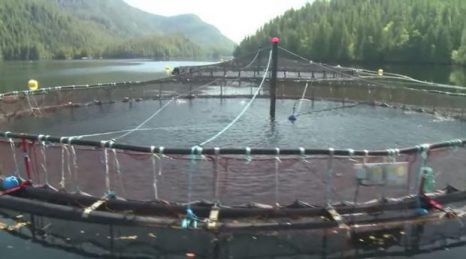
B.C. government looks into moving open-net fish farms onto land
British Columbia’s minister in charge of aquaculture tenures for the province is hinting at a major change in the provincial government’s approach to Atlantic salmon farming in Pacific waters. After the Washington State Senate passed a bill last Friday to phase out Atlantic salmon open-net fish farming in state waters by 2025, British Columbia’s First Nations hailed the move, raising hope the provincial government would do the same. >click to read<16:49

Gloucester again at center of drilling fight, along with everyone from every coast.
In the late-1970s, an unlikely alliance between environmentalists and commercial fishermen in this storied seaport helped block plans to open up Georges Bank to oil exploration — an effort that ultimately led to a federal moratorium on offshore drilling. Georges Bank, a shallow and turbulent fish spawning ground southeast of Cape Ann and 100 miles east of Cape Cod, has been fished for more than 350 years.,,, In Gloucester, those who fought similar efforts a generation ago are confident the city can again win a David vs. Goliath battle with energy companies. >click to read< The non-stop articles about the opposition to drilling is overwhelming. No one wants it. Wind farms are the real threat. 14:05
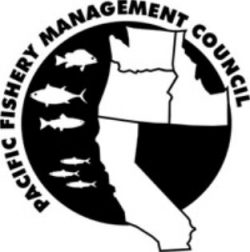
Pacific Fishery Management Council meeting in Rohnert Park, CA, March 8-14, 2018
The Pacific Fishery Management Council (Council) and its advisory bodies will meet March 8‐14, 2018 in Rohnert Park, California to address issues related to salmon, groundfish, ecosystem, highly migratory species, and Pacific halibut. Meeting Notice With Detailed Agenda (updated 02/14/2018)>click to read< Listen to the Meeting (GoToMeeting) >click here< (Enter the Webinar ID – The PFMC meetings 2017 Webinar ID is: 530-089-227, Please enter your email address (required) PFMC website>click here<19:32
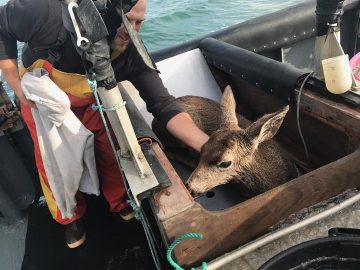
(PHOTOS) Crab Fishermen Rescue Young Deer That Was About to Drown Near Humboldt Bay Entrance
Late this afternoon, the crew of the Josie L was headed back to port after a day of crabbing when they spotted something in the water, some sort of animal swimming between the south and north jetties that frame Humboldt Bay’s bar crossing. “We didn’t know what it was,” Captain Dale Lindstrom told the Outpost. “We thought it might have been a dog.” As they got closer they could see that the creature was struggling to stay afloat in the choppy waters. They pulled the boat closer and the crew soon recognized the animal as a young deer,,, >click to read< 21:21
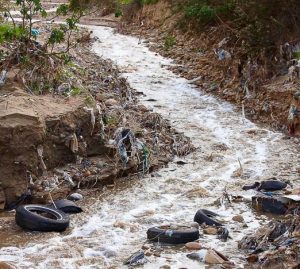
So Cal Cities Sue Over Tijuana Sewage Polluting US Beaches
Southern California cities, tired of their beaches and waterways being polluted by sewage entering U.S. waters from Tijuana, Mexico, sued the international agency tasked with upholding the Clean Water Act on Friday.,, “Human sewage, enormous volumes of sediment, industrial wastes, pesticides, massive amounts of trash, and a host of other nefarious pollutants from defendants’ facilities barrage the Tijuana River, its Estuary, the Pacific Ocean, and the Imperial Beach beachfront, contaminating those natural resources, stigmatizing the beachfront as unclean and unsafe, and sickening members of the public who use the Tijuana River Valley, the beach, and the ocean for recreation,” the cities claim. >click to read<16:52
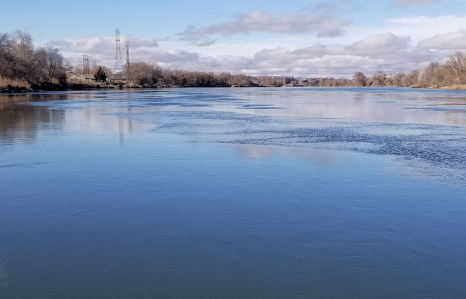
Wastewater worries
On Tuesday, the Ontario City Council voted to have City Manager Adam Brown send a returning letter to Oregon’s Department of Environmental Quality. The letter will outline major concerns with a draft sent to the city by the department for review and comment of National Pollutant Discharge Elimination System permit. The permit would allow the city to discharge wastewater into the Snake River, with new limits and pollutant monitoring six months out of the year.,, Among top concerns are the exorbitant costs to upgrade existing wastewater treatment facilities,,, Arsenic, along with copper and mercury are bioaccumulative toxins that aggregate in fish tissue,,, >click to read< 18:50
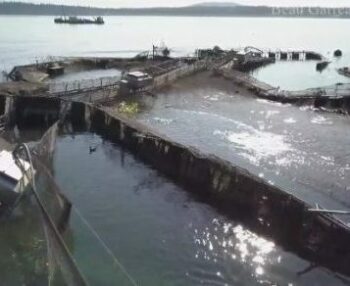
State kills Atlantic salmon farming in Washington
Atlantic salmon net-pen farming will be phased out in Washington by 2025 under legislation passed by the state Senate on Friday after a tough floor fight and fancy parliamentary footwork. With at least six lobbyists in a last-minute campaign, Cooke Aquaculture Pacific worked hard until the last vote Friday to keep its Atlantic salmon net-pen industry alive in Washington. But in the end the bill, which was buried under a blizzard of amendments, each one defeated, passed on a vote of 31-16. Lawmakers steamrollered through amendments by opponents,,, >click to read<15:51
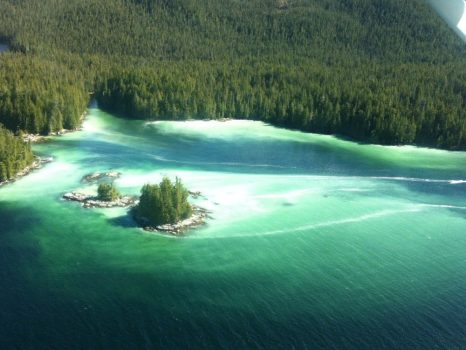
DFO shuts down fishery, citing First Nations reconciliation
Fisheries and Oceans Canada (DFO) has agreed to cancel this year’s commercial roe herring fishery on B.C.’s central coast, citing the federal government’s commitment to reconciliation with First Nations. The Heiltsuk First Nation and DFO officials were unable to come to a “shared understanding” about the health of the local herring stock. Herring biomass — a measure of health and abundance — has “flatlined” on the central coast, said Kelly Brown, director of the Heiltsuk Integrated Resource Management Department. >click to read< 10:10
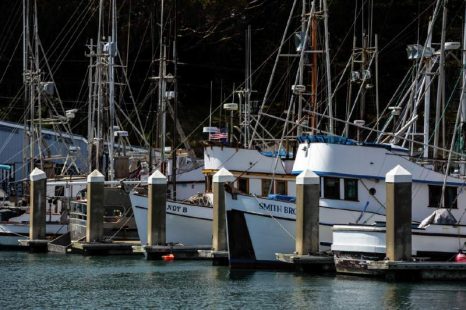
Has California’s salmon fishery hit bottom?
A third straight year of low king salmon runs is expected to deliver another blow to one of the North Coast’s most iconic and lucrative fisheries, wildlife managers indicated Thursday, as both regulators and fishermen faced the prospect of a federally -mandated plan to reverse the trend and rebuild key stocks. The grim news comes amid a dramatic, years-long decline in the state’s commercial salmon landings, which are down 97 percent last year from their most recent peak, in 2013, when they hit 12.7 million pounds. The full picture for commercial and sport seasons won’t be clear for several more weeks,,, >click to read< 13:01
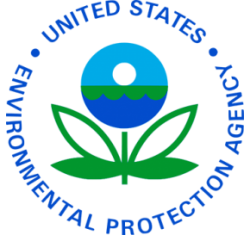
Seafood processor will pay $300,000 fine for oversized fish waste piles at two Alaska plants
Trident Seafoods has agreed to pay a $300,000 penalty and remove an underwater pile of seafood waste near Sand Point in a settlement with the federal government involving Clean Water Act violations at two Alaska plants. The infractions also involve the Seattle-based company’s seafood processing plant at Wrangell in Southeast Alaska, the Environmental Protection Agency said Thursday. At both facilities, Trident exceeded the one-acre limit on seafood processing waste piles it can discard into the water under its permits, the agency said. >click to read< 11:40
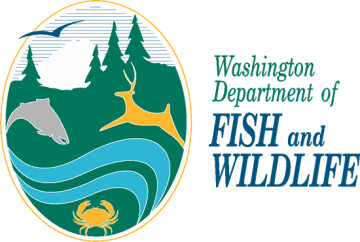
Department of Fish and Wildlife employee in Southwest Washington allegedly stole $80,000 worth of fuel
A Southwest Washington employee of the state Department of Fish and Wildlife has been fired after the agency alleged that he stole more than $80,000 in fuel. The Cowlitz County Prosecutor is reviewing the case for charging here. Bob Woodard, 47, had worked for the department for approximately 25 years and was an IT specialist in the Southwest Washington region. Public affairs director Bruce Botka said an internal investigation found Woodard had used multiple fuel cards given to different employees to make fraudulent purchases starting in 2010. Woodard was fired in early December. >click to read< 10:22
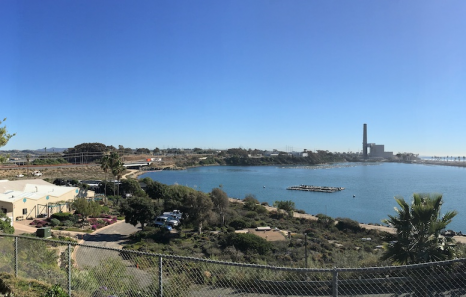
Carlsbad Fish-Breeding Program Is a Mess, Report Confirms
For years, the state has paid the Hubbs-SeaWorld Research Institute to breed and release white seabass into the ocean. The goal was to spawn enough new fish to help overcome threats from pollution, overfishing and habitat destruction. But years of experimental fish breeding at Hubbs’ Carlsbad hatchery have done nearly nothing to help restock the ocean, according to a new report by an independent panel of scientists. Instead, the program has potentially threatened the health of the wild white seabass population. The state has spent $22 million on the program over the past 15 years. In recent years, that’s amounted to about $12 per fish released into the ocean. >click to read< 08:49
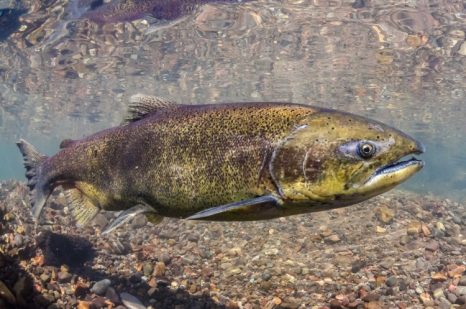
Largest Chinook salmon disappearing from West Coast
The largest and oldest Chinook salmon — fish also known as “kings” and prized for their exceptional size — have mostly disappeared along the West Coast. That’s the main finding of a new University of Washington-led study published Feb. 27 in the journal Fish and Fisheries. The researchers analyzed nearly 40 years of data from hatchery and wild Chinook populations from California to Alaska, looking broadly at patterns that emerged over the course of four decades and across thousands of miles of coastline. In general, Chinook salmon populations from Alaska showed the biggest reductions in age and size, with Washington salmon a close second. >click to read<17:14






